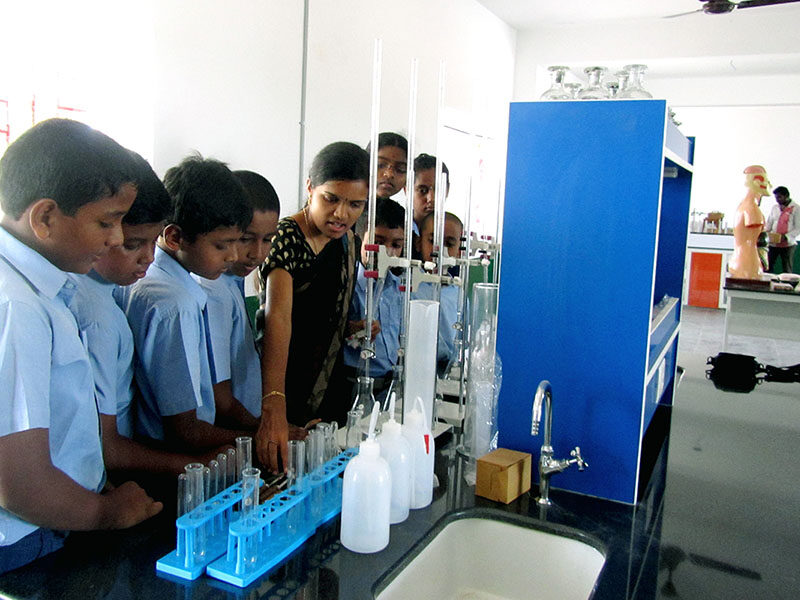
Laboratories aim to create opportunities to provide students with hands-on experience of laboratory experiments, which could bridge the gap between theoretical concepts and their application in everyday life. The laboratory performance is based on the idea that science focuses on hands-on, minds-on observational activities and that these activities help students make connections between various scientific concepts and real-life experiences. If students are to make use of any technology/ scientific skills in their classrooms, they must learn to make observations, formulate hypotheses, conduct experiments, collect data, use appropriate tools, analyse the data and interpret the obtained results. The practicals enable students to connect to other science areas, communicate the information effectively, and argue their conclusions logically. Students can learn these skills if they can participate in various laboratory exercises. In the study of Science, practicals are given special consideration as they are necessary to stimulate creativity, curiosity and critical thinking among students. Moreover, practicals help increase students’ engagement, thus boosting their interest in the subject.
School labs are an excellent place for students which help them enhance their learning by understanding the theoretical concepts of science taught in classrooms. Well-designed laboratories make science experiments fun and help students achieve good academic results. It helps to close the gap in the achievement of learning outcomes, and classroom transactions will shift towards competency-based learning and education. Hence, a well-equipped Science Laboratory is required in every school to:
Make learning Holistic, Integrated, Enjoyable, and Engaging
Develop conceptual understanding giving a strong emphasis on Experiential learning in all stages of science education to move toward Competency-focussed education.
Provide opportunities to students for hands-on learning to observe, experiment and innovate
Fulfill curricular expectations in a holistic manner
Create and facilitate a culture of research from the school level itself
Promote collaborative learning




